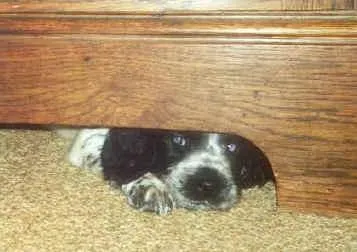
Fireworks and animals
The fireworks displays around 5 November will be noisy, colourful and dramatic. While many people look forward to them, countless animals find them terrifying. Each year, pets are lost or injured, livestock escape paddocks, and wildlife is disturbed. With some forward planning, you can reduce the risks and help animals stay safe and calm.
Fireworks and Animals Don't Mix
In the Northern Hemisphere, fireworks are part of autumn. But in New Zealand, it’s springtime. That means:
Farm animals and horses often have young at foot
Birds are nesting or rearing chicks
Long daylight hours mean displays start late when animals are usually quiet or resting
Sudden, loud, flashing displays during this sensitive time can cause real distress.
Why Fireworks Frighten Animals
The screeches, bangs and flashing lights of fireworks mimic natural danger. Even confident animals can panic. Common reactions include:
Dogs and cats running away or hiding, sometimes getting lost or injured
Livestock running through fences or gates, causing injury or road accidents
Birds abandoning nests, which can lead to the death of eggs or chicks
Older or nervous animals suffering panic attacks or even heart problems
How to Protect Pets During Fireworks
Keep pets indoors with doors, windows and curtains closed
Use background noise like a radio or TV to mask firework sounds
Provide familiar blankets or hiding places to reduce anxiety
Consider boarding pets elsewhere if a display is happening close to home
Talk to your vet if your pet is highly anxious or has a heart condition. A light sedative may help
Ensure collars are secure and clearly labelled in case pets run off
Fireworks and Livestock
Livestock, especially horses, ponies, foals and deer, are at high risk of injury during fireworks events. They may panic, break fences or gates, and end up on the road.
Steps to take:
Move stock to a secure paddock well away from the display
Stable horses if possible, or borrow a calm paddock companion for reassurance
Check fences and gates ahead of time to ensure they are secure
Stay with livestock during the display if they cannot be moved out of sight and sound
Domestic and Wild Birds
Birds are easily startled by fireworks, especially at night. Loud noises and flashing lights can:
Cause birds to flee nests, leaving eggs or chicks to die
Scare roosting birds, leading to injury in flight or disorientation
Disrupt migration patterns, especially during long-distance journeys in spring
Keep domestic birds in a secure, enclosed shelter overnight during known displays.
For Fireworks Organisers
A little consideration can go a long way. If you are planning a fireworks display:
Give neighbours advance notice with leaflets or community notices
Avoid using fireworks with high-pitched screeches or loud explosions
Use low-noise fireworks and keep displays closer to the ground where possible
Be aware of nearby livestock, horses and wildlife habitats when selecting a site
Enjoy the Fireworks Responsibly
Once you've taken steps to protect your animals and support your neighbours, you can relax and enjoy the show. Fireworks don’t have to mean stress or suffering for animals if we all plan ahead and act with care.
Want more practical tips for livestock care through the seasons?
Our What You Need to Know Before You Keep Livestock courses include species-specific seasonal advice for small block owners, from storm planning to animal health during spring.

